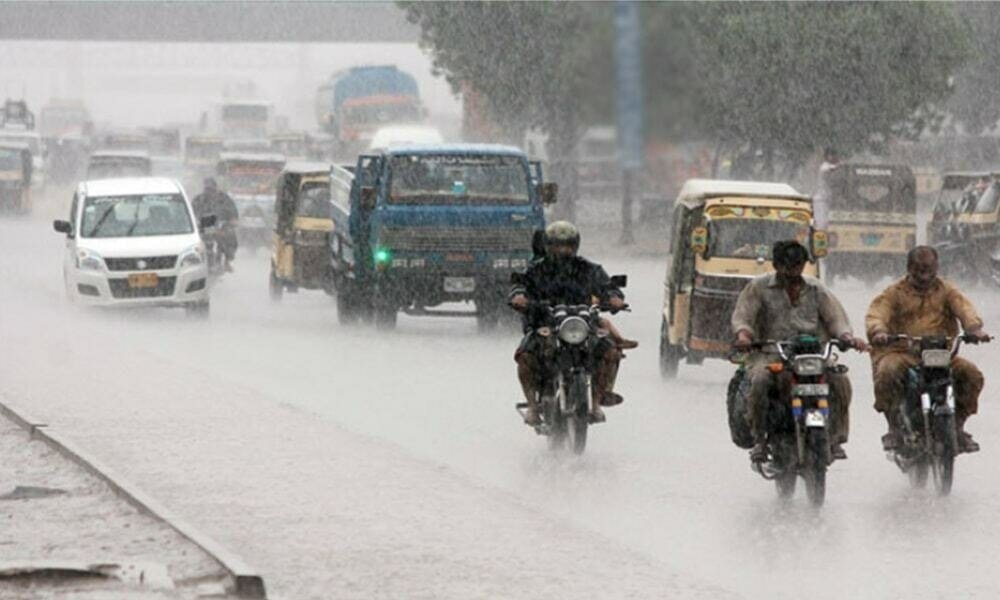Rainwater Harvesting: Mandatory Implementation Announced for All New Buildings in Pakistan

Government Takes Bold Step Toward Sustainable Water Management
In a landmark move to combat water scarcity and promote environmental sustainability, the government of Pakistan has made Rainwater Harvesting mandatory for all newly constructed buildings across the country. The decision, announced by the Ministry of Climate Change and Urban Development, aims to encourage water conservation, reduce urban flooding, and help recharge groundwater resources.
As Pakistan faces growing challenges due to climate change, rising urbanization, and depleting freshwater reserves, experts believe that Rainwater Harvesting could be a game-changer in achieving long-term water security and resilience.
What Is Rainwater Harvesting?
Rainwater Harvesting is a sustainable technique used to collect, store, and utilize rainwater for various purposes. This method typically involves capturing rainwater from rooftops, paved areas, and other surfaces, and channeling it into underground tanks or recharge wells. The stored water can be used for irrigation, flushing toilets, cleaning, and even treated for drinking.
Countries like India, Australia, and Singapore have already implemented large-scale Rainwater Harvesting systems to address water shortages — and now Pakistan is stepping up to follow suit.
Implementation Across the Country
New Building Codes Enforced
Under the new regulations, Rainwater Harvesting systems will be a compulsory part of the architectural design for all new residential, commercial, and industrial buildings. Building plans submitted to municipal authorities will now require a Rainwater Harvesting blueprint to receive approval.
The decision will be enforced by provincial building control authorities and the Capital Development Authority (CDA), with strict penalties for non-compliance. Builders failing to install proper Rainwater Harvesting infrastructure may face fines or revocation of construction permits.
Why This Move Matters
Pakistan’s Water Crisis
Pakistan is among the top ten countries most vulnerable to climate change. According to the Pakistan Council of Research in Water Resources (PCRWR), the country could face absolute water scarcity by 2025. Major cities like Karachi, Lahore, and Islamabad are already experiencing severe water shortages, driven by unregulated urban growth, excessive groundwater extraction, and inefficient water management.
Rainwater Harvesting provides a natural and cost-effective solution to this crisis. It helps reduce the burden on groundwater, minimizes surface runoff during rains, and improves the overall urban ecosystem.
Key Benefits of Rainwater Harvesting
-
Water Conservation
It reduces dependency on traditional water supply systems, especially in areas facing water scarcity. -
Groundwater Recharge
Collected rainwater can percolate into the ground, replenishing depleted aquifers. -
Flood Mitigation
During heavy rainfall, Rainwater Harvesting can help manage stormwater, preventing urban flooding. -
Cost Savings
Reduces water bills for households and commercial establishments by providing an alternate source. -
Environmental Sustainability
Encourages a more eco-friendly approach to urban planning and resource management.
Government Statements and Policy Support
Climate Minister Welcomes the Change
Federal Minister for Climate Change, Sherry Rehman, praised the decision and emphasized its importance in national water conservation efforts:
“Making Rainwater Harvesting mandatory is a critical step in preparing Pakistan for future climate shocks. With cities expanding rapidly, we must ensure that our development does not come at the cost of our environment.”
The Ministry has also released guidelines on how to design effective Rainwater Harvesting systems, and training programs are being planned for architects, engineers, and local authorities.
Urban Planners and Experts React
A Long-Overdue Step
Urban development experts have welcomed the mandatory adoption of Rainwater Harvesting. Dr. Hassan Abbas, a renowned hydrologist, remarked:
“This is a long-overdue move. Rainwater is a free and renewable resource. For decades, we’ve let it go to waste. Mandating Rainwater Harvesting is the smartest way to secure our urban water future.”
He also stressed the importance of public awareness and training programs to ensure successful implementation.
How Homeowners and Builders Will Benefit
Practical Applications and Savings
For homeowners, Rainwater Harvesting systems can significantly lower monthly water costs. Collected rainwater can be used for gardening, washing vehicles, or even filtered for indoor use. Builders who adopt such systems may also receive green building certifications and incentives from the government in the future.
With rising real estate prices and environmental concerns, eco friendly features like Rainwater Harvesting are becoming selling points for modern housing projects.
Cities Already Taking the Lead
Islamabad and Lahore Pilots
Several Pakistani cities have already piloted Rainwater Harvesting initiatives. In Islamabad, the CDA began installing underground tanks in parks and public buildings as early as 2018. Some private housing societies have also incorporated Rainwater Harvesting infrastructure into their master plans.
In Lahore, the Water and Sanitation Agency (WASA) collaborated with international partners to introduce pilot projects that have shown promising results in groundwater recharge.
These examples will serve as blueprints for the nationwide rollout of the new mandate.
Challenges and the Way Forward
Ensuring Compliance
While the decision is a positive step, enforcement will be key. In the past, environmental building codes have often been ignored or loosely implemented. Experts urge the government to set up monitoring units, conduct random inspections, and offer subsidies to low income homeowners to install Rainwater Harvesting systems.
There is also a need to invest in public awareness campaigns to educate citizens about the benefits and techniques of Rainwater Harvesting.
Technology and Innovation
Smart Harvesting Systems
As Pakistan moves toward a digital future, technology can play a role in enhancing the efficiency of Rainwater Harvesting systems. Smart sensors can monitor water levels, detect leaks, and even automate water usage based on demand.
Local startups and engineering universities are already exploring low cost, tech enabled solutions tailored for Pakistan’s urban environments. Encouraging innovation in this space will ensure that Rainwater Harvesting is both effective and scalable.
Conclusion: A Sustainable Path Forward
The mandatory implementation of Rainwater Harvesting for all new buildings in Pakistan marks a significant step toward addressing the nation’s looming water crisis. With proper enforcement, public awareness, and innovative solutions, this policy could pave the way for a more sustainable, water-secure future.
By capturing rain before it goes to waste, Pakistan is finally beginning to recognize and utilize one of its most abundant yet overlooked resources. As the climate crisis intensifies, adopting and scaling Rainwater Harvesting may be not just a smart policy, but a national necessity.



